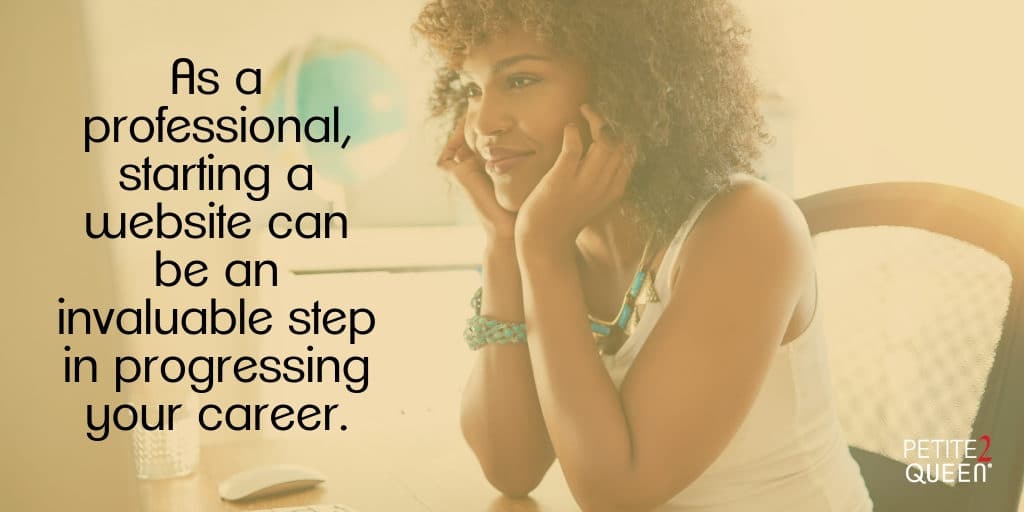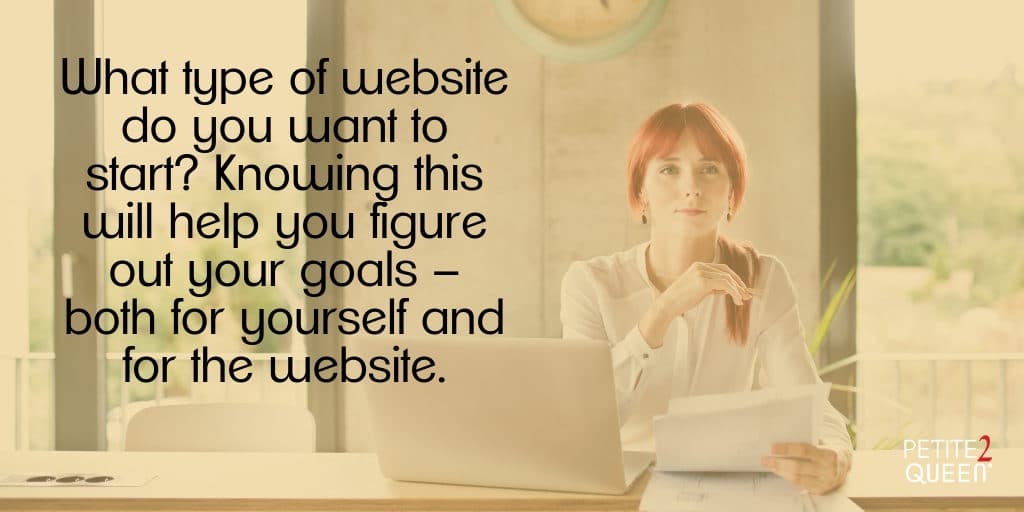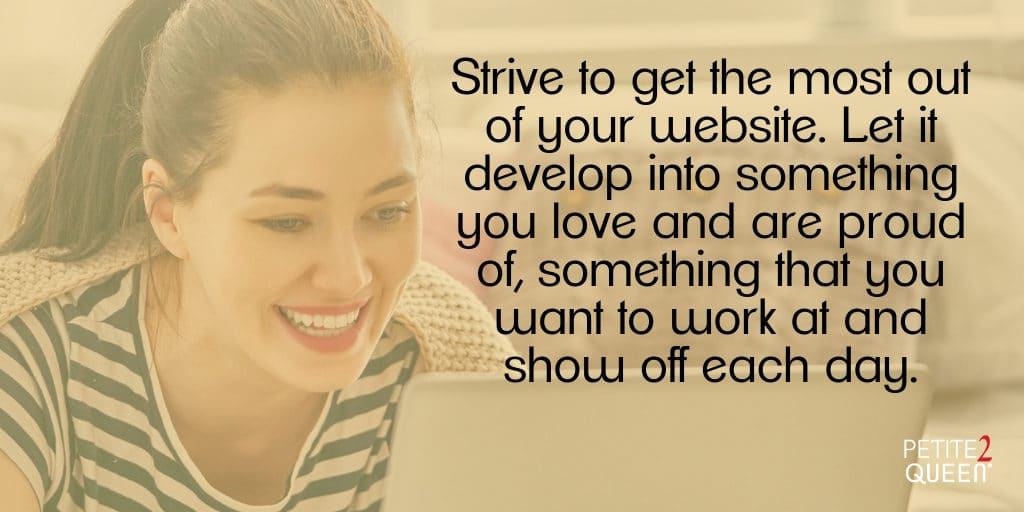In this day and age, anyone can have their own website. It’s not limited to giant corporations and tech-savvy computer engineers anymore – anyone from your school-aged neighbor to your adventurous great aunt can set up and maintain a website. The barriers have come down, and there’s no reason you can’t set up your own online space. More than standard social media, your own website can serve as a means of communication, demonstrate your skills and accomplishments, and connect you to like-minded people around the world.
As a professional, starting a website can be an invaluable step in progressing your career. Beyond acting as an accessible portfolio of your work, it can also provide you the perfect mode to acquire new skills and refine existing ones. It can even be an integral part of your business. Your website can serve many purposes – it’s all down to what you aim to get out of it.
Why Should You Start a Website?
Websites serve all kinds of functions and gain the interest of all kinds of people. There are any number of reasons why you may want or need to start a website.
- It could be a fun, creative way for you to express yourself. Maybe it’s a public journal, a blog about your love of cats, or a place for you to show off your photography. Even fun, personal websites can give you an opportunity to hone your professional skills. Add “website development” and “journalism” to your resume!
- It could be a professional portfolio and online resume. Many people start websites to publish their best work so that potential employers have a fuller understanding of their background and qualifications. Many artists set up a portfolio of their photography, modeling, or other visual media. You can also create a portfolio of written work, successful projects, and more.
- You may need to set up a business website for your company. Any viable company – be it a restaurant or a marketing firm – should have a website. It’s necessary in this day and age. Not only does it foster credibility, it also makes it much easier for people to learn about your company and contact you.
What type of website do you want to start? Is it a fun, personal blog? An online resume or portfolio? A proper business site? Knowing this will help you figure out your goals – both for yourself and for the website.
What Are Your Website Goals?
What do you want to get out of your website? Who do you want to attract and what do you want them to get out of it? What are your personal goals regarding this new website project? You need to know what you’re aiming for so that you can set up your website accordingly.
Contemplate what your website goals are before diving in. Think about why you’re starting this site and for whom. Is it just for yourself and your own growth as an individual? Or do you want to have a small audience? Perhaps you want a large audience visiting your site every day. Based on these goals, how much work is required of you and how much time are you willing to put in? Some blogs or sites may only need an update every couple of weeks. Others may need daily updates. Do you have the time and dedication needed to make this website as big as you envision it?
Knowing your audience will also help you decide the look and feel the website needs. Some audiences may expect something light and welcoming, and you’ll want the content and tone to create that space. If your website is meant to attract serious professionals, you’ll need an online space that looks and sounds professional. Think about the colors, site layout, type of content, and writing style. What is already out there, and what new ideas can you offer that make your website more uniquely appealing?
On a personal level, you’ll also need to determine what you want to get out of this. Are you making this website so you can gain valuable work skills? What skills do you think you’ll gain? Perhaps you want this site to bring professional attention to you, leading you to a good job. No matter what kind of website you start, you’re bound to encounter some personal or professional growth. You’ll also likely feel a great sense of accomplishment at having made such an incredible website.
Example: My Goals for My Music News Website, Hidden Jams
Ever since I had an internship working for an entertainment news startup, I’ve wanted to work in music journalism. However, apart from that brief internship, I didn’t have any professional experience or a solid portfolio. The job search wasn’t getting me any closer to my goals, so I decided to make my own experience. I started my own music news website, Hidden Jams, early in 2014.
My main goal was to gain experience writing music news, album reviews, and editorial pieces related to the industry. After writing hundreds of articles, my website now serves as a great portfolio of my work. It’s something I link to in my resume and describe in cover letters when applying for jobs.
Beyond accruing experience, I also had a loftier, more difficult goal: I wanted Hidden Jams to gain a loyal following, and eventually have enough of a presence that it could be my full-time job. If I keep working at it, maybe Hidden Jams will grow into a reliable music news source. It may never reach Rolling Stone or Billboard levels, but it can grow enough to become a viable business.
Knowing these goals, I was able to make a website that looks and reads like a real music news company. I’ve developed my writing skills, but I’ve also learned much more than I’d expected about all that goes into maintaining a website. It has already led me to incredible opportunities, and has allowed me to meet my goals.
How to Start Your Website (It’s Easier Than You Think!)
So you definitely want to start a website. But how do you do it? You may not know the first thing about making a website. Luckily, it’s a lot easier than you’d think.
First, you’ll need a platform to start your site. WordPress and Wix are among the most common tools for new website developers. Alternately, many people looking to start a simple blog turn to Tumblr or Blogger. With any of these, you can start a website for free, sometimes with certain limitations. You can choose your free URL, though it may have something like “.wordpress” in it. Otherwise, you can pay some $15/year for a proper URL.
Your free website may do everything you need it to do, especially if you just want a simple blog, but it will have some major limitations. You can upgrade to a business account for extra flexibility, but to get all the fancy features, you’ll want to find a host. There are numerous hosting companies you can try – like GoDaddy or Bluehost – all with different perks and features. Hosting can cost upwards of $100 per year, and much more depending on your needs.
If you get a hosted website, it will be able to do everything you need it to do. Plugins are a great way to customize your website and give it the functionality you need. Many are free, and they’re generally very easy to install and use. You’ll also want to pick the right theme. There are thousands of theme options, many of them available at no charge. You can search based on what type of theme you want. If you’re building a portfolio website, there are hundreds of great portfolio themes; if you’re making a news website, explore the hundreds of magazine themes. They’re all customizable and generally quite easy to use, even for complete beginners.
Don’t worry about not knowing any coding. Most of the time, you won’t need to do any coding to make your website look the way you want it. The customization options are extensive, and most of what you need can be done with simple clicks of the button. No CSS or PHP necessary. Of course, if you do know coding, or are prepared to learn some, that will give you even more room to play with the website and make it exactly what you envision.
Once you’ve gotten your hosting, domain, theme, and plugins, it’s time to write content. You may want to start with the standard pages, like “About” and “Contact Us.” From there, dive into writing your blogs or news articles, uploading your portfolio projects, and organizing your home page. Even after you’ve published a page, you can always go back and edit it to fix any mistakes or make updates as needed.
Skills You Can Learn
- Website Development. First and foremost, you’ll learn a ton about website development. You’ll learn about hosting, domains, plugins, themes, and overall website maintenance. You’ll eventually become very comfortable working with websites and making them look right and function correctly. With time and practice, your confidence and skill will grow tremendously, and could lead to exciting opportunities down the line. Remember to add these skills to your resume!
- Writing. Depending on the type of website you develop, you may end up writing a ton of content. Blogs, articles, and even standard web pages will all showcase your writing and copyediting skills. As you write more and more, you’ll gain a strong sense of style and voice, allowing you to best reach your target audience. Whether you’re writing for friends or clients, your developing writing skills will evolve and improve each day. Quality writing is useful in a wide variety of vocations, and this skill will help you throughout your life.
- Design. Again, depending on where you take this website, you may develop an eye for good online styling. You’ll determine the best layout for your content, the ideal images to use on each post and page, and the colors that clearly communicate your brand. Certain plugins and themes will allow you much more design freedom, and employing some CSS and PHP will take your customization to the next level. You may give the site the occasional style overhaul, bringing it closer to how you envision it to look. This newly acquired design skill will carry over into other projects you take on.
Getting the Most Out of Your Website
There’s so much you can gain from starting your own website. Whether it’s a blog, a portfolio, a news site, or what inspires you, it will provide you with limitless opportunity to express yourself, hone your skills, and show off all your accomplishments. Even if you didn’t seek out to create a portfolio, the website will ultimately act as a testament to your web development, writing, and design ability – not to mention other skills you display there. It can connect you to people and businesses around the world, opening the door to a wealth of opportunities.
No matter your goals or bandwidth, strive to get the most out of your website. Let it develop into something you love and are proud of, something that you want to work at and show off each day. Give yourself the time and permission to let it grow, and don’t be too hard on yourself – especially if your time or skill are limited. Have fun with it. You never know where an inspired website will lead you.

Amanda Whitbeck is Vice President of Operations at Petite2Queen. Since earning her master’s degree in Global Entertainment & Music Business from Berklee College of Music, Amanda has played key roles facilitating growth at start-ups. She’s also worked in diverse sectors of the music industry, from live events promotion to entertainment journalism. She brings her expertise in music business, writing, and website development to Petite2Queen.




